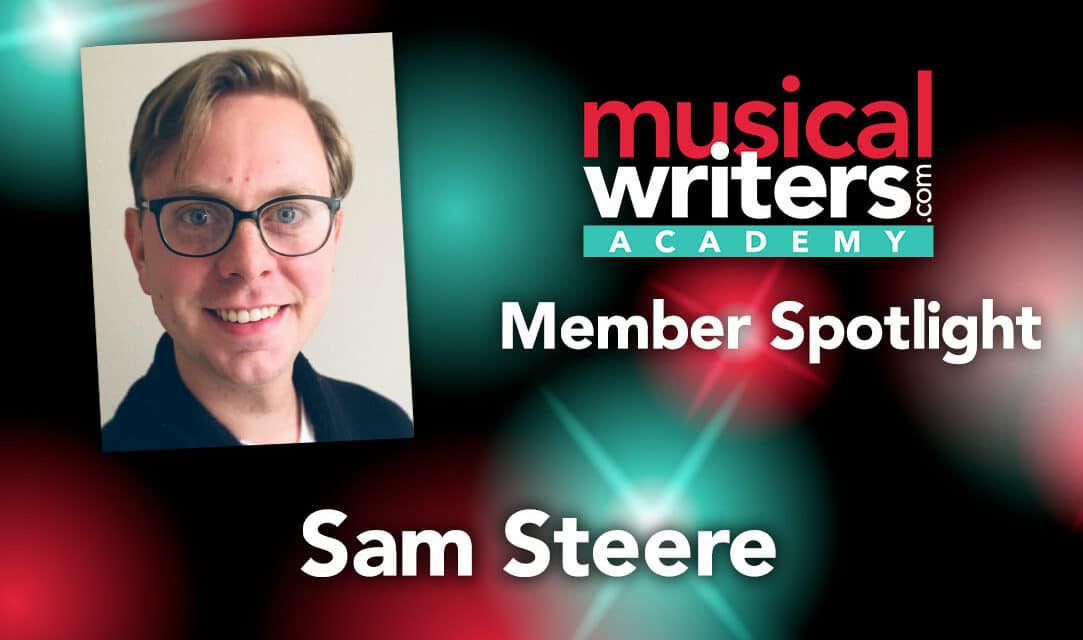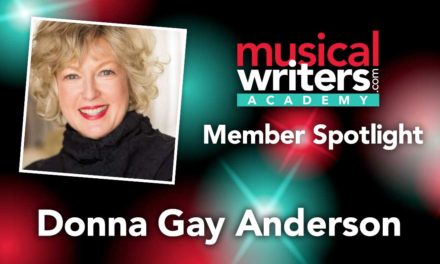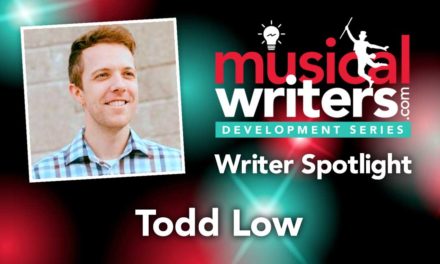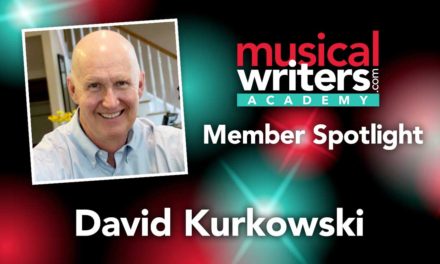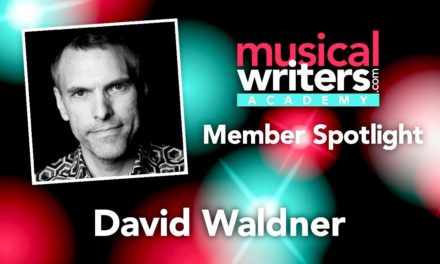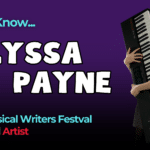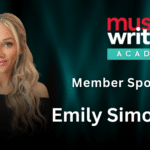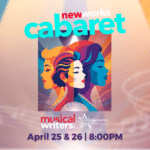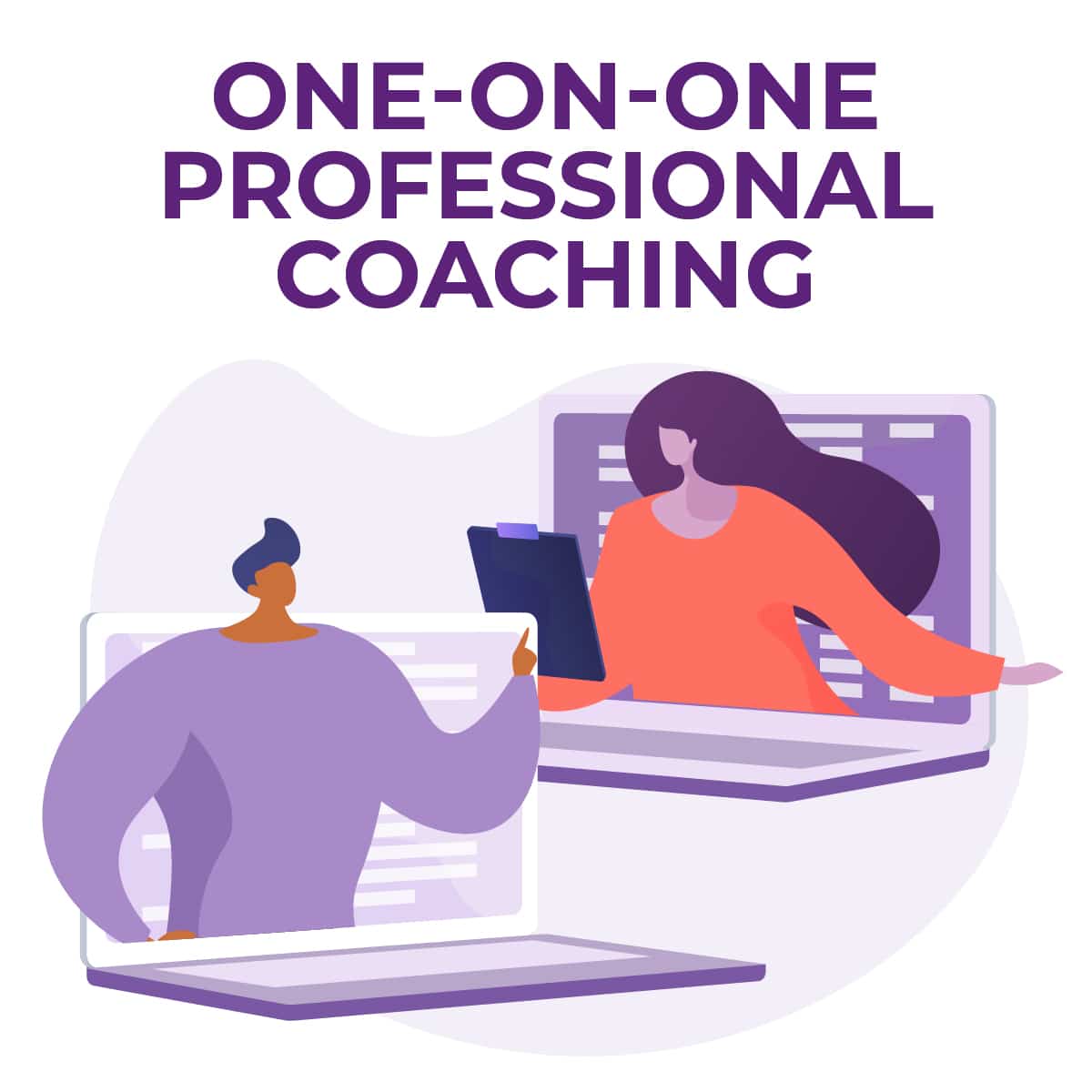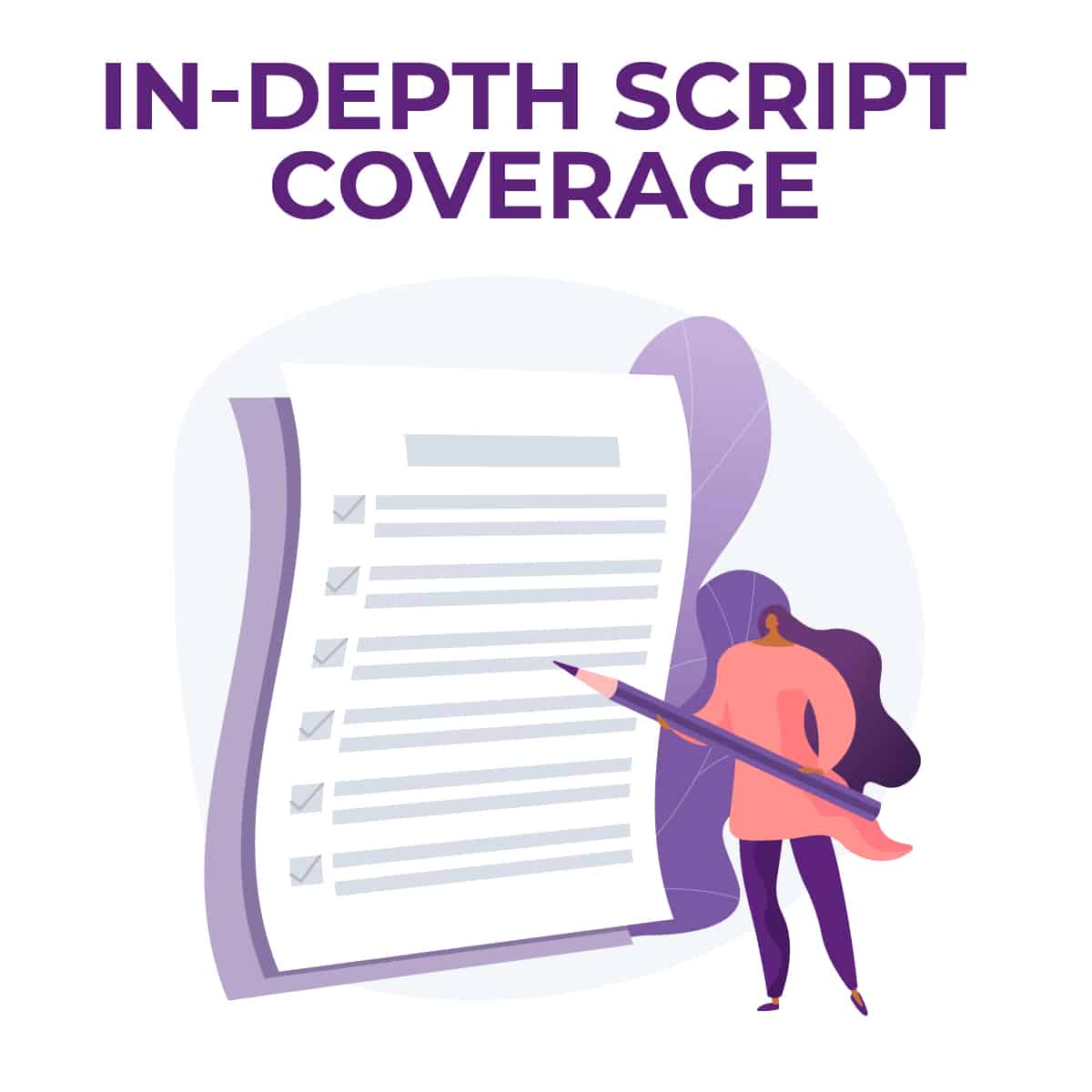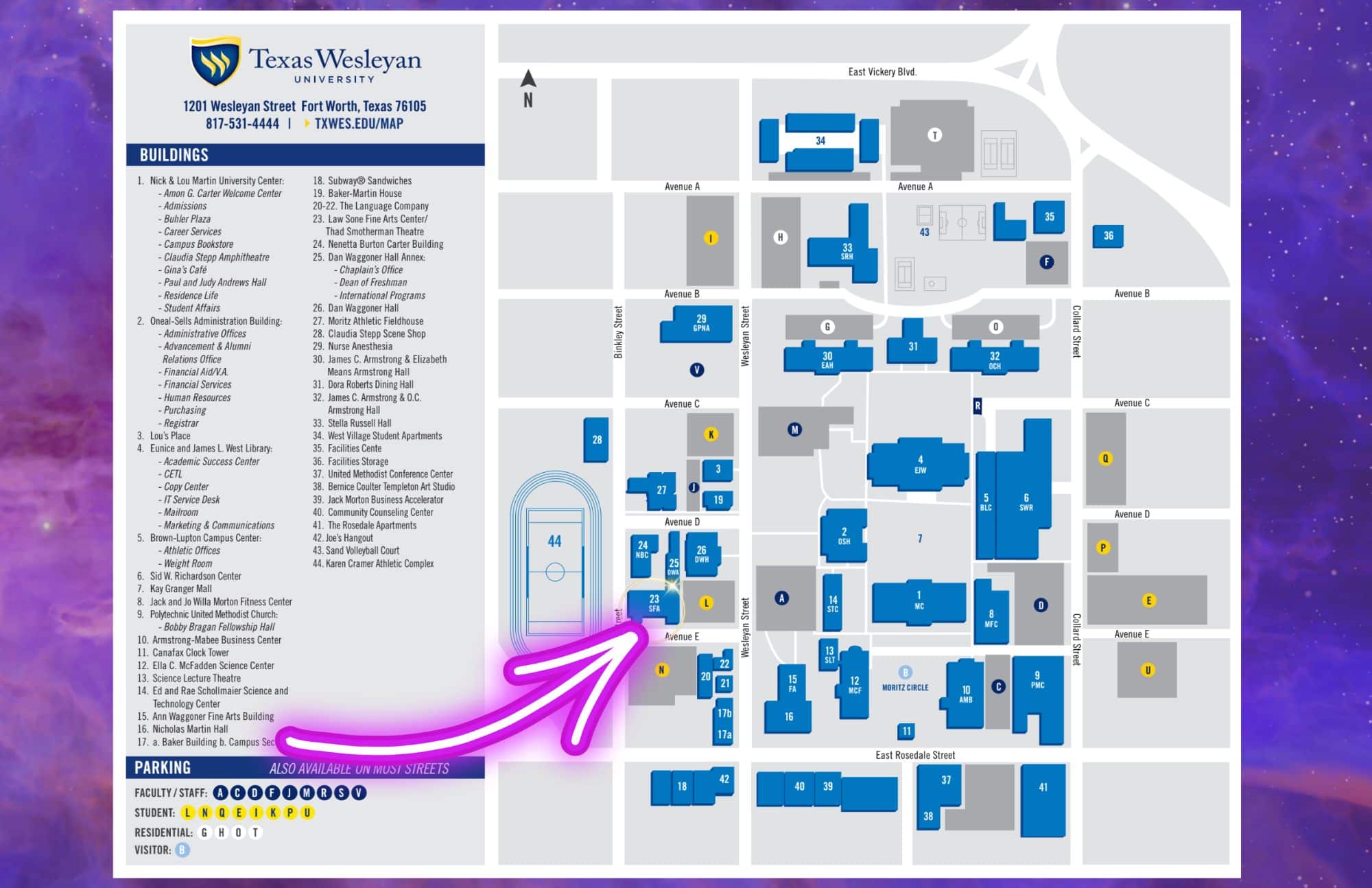More than anything, I write because it’s good for me. It’s where I feel at home. And if it’s good for someone else too? Well, all the better!
~Sam Steere
MusicalWriters Academy is made up of bookwriters, composers, and lyricists of all ages and all over the world. We love supporting our members, and we want to help share what they’re doing, what they’re learning, and where they’re headed.
Sam Steere was the winner of our last Academy Reading Series Pitch Night and had a wonderful reading of his show My Father’s Dragon in early 2022 at Dallas Children’s Theater.
What’s a lesson you’ve learned from your writing journey that you’d like to share?
Sam Steere: Two things come to mind. First, don’t wait for inspiration. Write something. Have some kind of habit/routine/practice that encourages you to create. Second, wait for inspiration. There are times it won’t flow. Times when nothing seems to come easy. Sometimes you can push through that. But for me, more often than not, it’s a sign I need to slow down, pay attention to my need for rest and relationships, and come back to art when I’m good and ready. If I obey those two conflicting tenets, I can find a fairly consistent creative space in the in-between.
Writing a musical isn’t easy. What’s your “why” in being a musical writer?
SS: In short, I can’t imagine not writing musicals. I like stories, but I’d be discontent with words alone. I like songwriting, but the small-scale scope feels limiting…and I never seem to say it all in one song. My mind is one that thrives on multi-layered creativity. A musical has that in spades. I can go from the nuanced detail of inner rhymes in a lyrical line to the unfettered imagining of some unexpected plot device in a matter of twenty minutes. Is it infuriating at times? Absolutely. But it’s infuriating like a crossword puzzle or a Rubik’s Cube, begging to be solved. More than anything, I write because it’s good for me. It’s where I feel at home. And if it’s good for someone else too? Well, all the better!
Why did you join MusicalWriters Academy?
SS: Connection. Creativity. Curiosity. Forgive my love of alliteration. The primary push initially was just to connect with like-minded people. Especially given the isolation of the pandemic, I was looking for creative ways to build friendships when so many other avenues were closed. Creatively, I hoped this connection would fuel a synergy that would energize my writing and help me move forward. And finally, I was curious. The spirit of how MusicalWriters describes itself is very akin to how I like to operate in the world: create, connect, encourage. And I wanted to see if there was something real beneath the marketing. I believe the answer is “yes!”
How did you get bit by the theater bug?
SS: I did my first play in 8th grade and auditioned for my first musical as a sophomore in high school. Unfortunately, I moved out of the country before rehearsals began. My dad had been working abroad in Europe, and we were all ready to be in the same place again. That said, I was heartbroken to be missing my first show (Beauty & the Beast). I had discovered songwriting the year before, so as my emotional coping mechanism, I began — you guessed it — writing a fairy tale musical of my own. I ultimately moved back after six months and found my voice onstage in Fiddler on the Roof and Seussical. To this day, I often feel most at home in the theater.
What do you love about MusicalWriters?
SS: The open door. In less than six months, I’ve downloaded resources, attended calls with industry professionals, met monthly with a Writer’s Group, and participated in the Academy Reading Series Pitch Night. That pitch went on to be selected for a staged reading produced by Rebecca Lowrey, which is the first time I’ve ever seen my work performed outside of a school setting. Now, I was fortunate that I had a show ready to submit, but the benefits would be there regardless.
I’m a stay-at-home dad in a small midwestern city who hasn’t done anything in theatre for a decade. I happen to love writing musicals. The Pitch Night offered me the possibility of something otherwise very much out of reach: an opportunity to see my work on stage, with real actors, at no personal expense. For folks like me who don’t have established contacts in the industry, that is a game-changer. It also provides a starting point for creating those connections organically.
The Pitch Night offered me the possibility of something otherwise very much out of reach: an opportunity to see my work on stage, with real actors, at no personal expense. For folks like me who don’t have established contacts in the industry, that is a game-changer. It also provides a starting point for creating those connections organically.
What are you working on right now?
SS: My Father’s Dragon, based on the beloved children’s novel, just received its first staged reading! I’ll be making a few edits and then looking to pitch it to Children’s Theaters to include in next year’s season. I recently started collaborating on a new show with a fellow Musical Writers Academy member. He had a full script and lyrics but needed a composer. I admired his style, liked the show, and have set a handful of songs to music already. It’s been delightful! I’m also brainstorming a possible song cycle with a playwright friend. And just for fun, I have a couple of half-formed concepts that I jot ideas down for when the notion strikes.
Tell us more about your reading with Rebecca. What did you learn?
SS: I feel incredibly fortunate to have had Rebecca lead the reading process. She took my script and score and taught it to a group of actors over the course of one week. She supplied me with video recordings of the performances, along with sharing feedback forms with actors and audience members. We then had an extended debrief after the performances going through each song and discussing weaknesses and strengths.
Big picture, I learned that the show is in a pretty good place, especially for a first reading. It confirmed something that I’d suspected: that I needed to add a new opening number. I took too long to get to the first song. It also revealed a way I need to improve as a composer: pitching songs that are not in my vocal range.
All in all, I was very pleased with the end product and I wholeheartedly encourage other writers to work with Rebecca when the time comes!
What words of wisdom would you share to someone before they submit to the Academy Reading Series?
SS: It doesn’t have to be perfect, but it does need to be prepared. Here’s what I mean. Inherent in a reading is the expectation that there will be something worth editing. That’s why you do a reading before investing in a production. So let go of the perfectionism that says the show must be *just so* before you submit it.
Once you’ve shown Perfectionism the door, then get prepared.
For the paperwork, get a finished Piano/Vocal Score that is clear, clean, and has all internal dialogue embedded into the music. You don’t want your performers to have to flip between script and score mid-song. It’s messy and unnecessary.
For the pitch, you have to be succinct. Most of us are terrible at this! So…write down the heart of the show is in clean, concise language. Add a brief synopsis (you’re trying to hook them, not tell them the whole story). And save time for musical excerpts (assuming you want to use them).
What is your favorite musical writing tech tool?
SS: Most of my actual writing happens at the computer. I can type faster than I can write, so I do a lot in basic word documents, then sketch music out in MuseScore or (now) Sibelius, and put together homemade demos via GarageBand. Being able to export piano MIDI from notation software to GarageBand saves me so much time rather than having to practice more complicated arrangements to record. That said, the app “Voice Memos” is probably my favorite simple tech tool. I use memos to hear back lyrics, improvise melodies, and share half-formed ideas with collaborators.
And my favorite low-tech tool is going for a long walk. 🙂
Sam Steere (b. 1988) is a composer, songwriter, teacher, and performer from Springfield, Illinois. His show My Father’s Dragon won the Academy Reading Series Pitch Night through MusicalWriters.com (Dec ’21). Sam’s music and lyrics have been featured by Hexagon (Washington’s Only Original Political Satire Musical Comedy Review) and Under the Arch Incubator in St. Louis, MO. He loves a good story song, has dabbled in opera, likes a bit of jazz in his coffee, and generally enjoys the alchemy of lyrics and music. Sam loves writing whimsical adventures for young audiences and small-scale relational dramas for adults. A little dash of sci-fi or magical realism is always a plus. But most of all, he loves finding that touch of wonder and kindness in the everyday.

